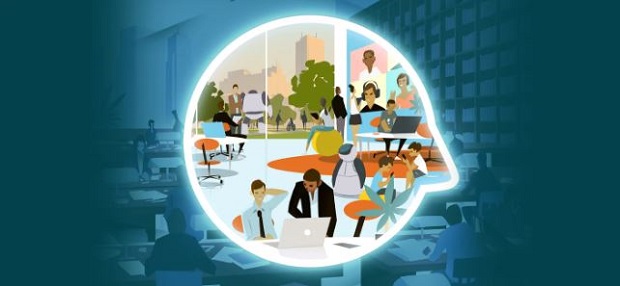Related Articles
What leaders need to adapt to the new future of work
Covid-19 has been a stark and aggressive reminder about the volatile and uncertain world of work that we are living through in the modern age.
The challenges and opportunities presented to all of us by (1) the fragile nature of work in uncertain environments and (2) the new and emerging ways of working have developing in different ways for many years.
But these trends have been well and truly landed on our doorstep in 2020.
And, as COVID-19 is proving, automation and technology are not the only forces at play in shaping the new world of work – healthcare, climate change, globalization, wealth distribution and demographics are amongst the other forces at play influencing our #futureofwork.
The clear message from these trends, and being acutely experienced right now, is that we need to be able to personally learn to adapt to rapidly changing times and circumstances in the new world of work. Not just for now but also from now on, beyond this crisis.
New remote working tools and practices will help but there is a more fundamental mindset and skill-set required – both of which we as humans have always instinctively had. The difference with today’s context is that we need to be increasingly aware and conscious of these skills in a more deliberate and front-of-mind way than ever before. And as leaders we need these skills not just for ourselves but to help those whom we lead to cope and thrive as well.
Adopting a Future of Work mindset – and skillset

So, what are the adaptive skills and attributes of those who thrive (rather than just cope) in the changing world of work ? We researched these skills over a two-year period by diagnosing individual case examples with leaders across multiple sectors, organisational size and geographies.
The motivation behind researching these attributes and skills was simply to help people to take more positive control of their own path in an ever-changing work and disruptive career environment – and to be more mindful of the practical skills needed to do so.
The essence of these “Personal Agility” skills and attributes are summarised as follows with the details and actual competencies identified included in our full whitepaper referenced below:
1. Being Purposeful – having an outlook, attitude and bias for intentful action. Being clear about what you are about and why, underpinned by a core set of personal values and beliefs that help bring focus and direction in both the short and longer term. For adaptive people, these ‘purposeful characteristics’ provided resilience and worked like a rudder for them in navigating changing circumstances. They helped them to be more receptive to changing course and learning new skills so long such changes helped them in moving towards where they wanted to go and who they wanted to be.
2. Having a Learning Mindset – an openness to learning and to new perspectives, to developing new skills, experimentation and seeing opportunities for growth. As well as having a growth mindset, the adapters were resourceful and creative in learning new skills.
3. Open to Change – being positively oriented to change rather than naturally resistant to it – seeing change normal and as a growth opportunity rather than a threat. Being ‘change-able’. Building resilience and being able to bounce back and deal with changing and unwelcome circumstances.
4. Empowered – self-motivated (as well as encouraged) towards taking action and responsibility, being accountable for your own path, development and decisions accepting that they may not always work out as planned.
5. Orientation to engage and work with others – being prepared to build relationships, collaborate and positively deal with different and diverse perspectives and opinion. We simply need other people in one way or another to succeed in the future of work.
While of course we need to have the right culture and leadership for these skills to flourish, they are ultimately individual, learnable skills that we can develop in ourselves and in others if we are all to thrive in uncertain times.




